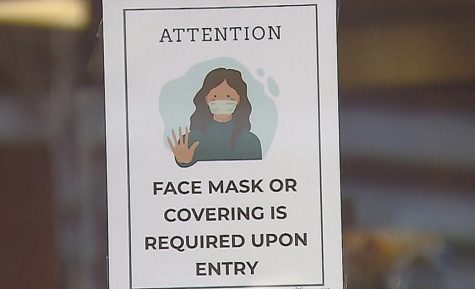Counterpoint: Taylor Swift is being criticized too harshly
December 19, 2013
Taylor Swift’s music is criticized by many, but not for good reasons. Her critics argue that her songs are too focused on romance to set a good example for her listeners. But this isn’t the case at all.
In fact, lots of Swift’s music is focused on topics other than romance. She writes about stories from her past or inspirational, encouraging songs. Cleo Rank, a freshman, cited the song “Mean” as being about “standing up and not letting yourself be pushed down.” Many of Swift’s songs include themes like overcoming struggles, being yourself and escaping bad relationships. Her fans are easily able to relate to her music and can listen to it when solving their own troubles. They are uplifted and inspired by the encouraging tone of Swift’s lyrics.
Many point to Swift’s focus on love and her relationships with men, saying that this sets a bad example for young girls. Why shouldn’t she be able to write about love? Love is one of the most powerful human emotions and well worth sharing to the world. Writing about love is what makes Swift so popular, being highly relatable to her fans. Tavi Gevinson, founder of Rookie Mag, wrote in the July/August 2013 issue of the Believer Magazine that “it’s suggested, perhaps, that her music is less about being in love or mourning the loss thereof, but how incredible it is that we can know what it’s like to have these emotions at all.” Swift agrees, writing in her biography (found on her website) that “as far as I’m concerned, love is absolutely everything.”
The idea that love is one of the most important feelings in the world comes up over and over again in Swift’s music, leaving a deep mark on the listener. When Swift’s critics say that she writes too much about love, one must ask if this is even a legitimate argument, as it is in fact one of her biggest advantages.
Though yes, Swift’s songs focus mainly on her relationships with men, Swift’s fans (mainly teen and tween girls) spend a significant amount of time thinking about crushes, dating and romance in general. Her honest lyrics do not beat around the bush about her feelings. Swift’s fans are encouraged by her music to make the right choices and respect their own feelings when it comes to relationships, especially when they are in an unhealthy position.
Parents aren’t concerned about Swift’s music being inappropriate for their children. A 2011 issue of the New Yorker quoted a mother saying, “there’s nothing like Taylor. I’m not worried about the words coming out of her mouth.” Most parents feel entirely comfortable with their children listening to Swift’s music, and even encourage it.
Gevinson argued that Swift’s writing about love is natural and doesn’t affect the quality of her music. “She dates people, she writes songs about her life, naturally many of these songs are about people she’s dated, and many of them aren’t, as well. Mostly, basically: I DON’T CARE, I LOVE IT,” wrote Gevinson. What’s especially meaningful is that Swift’s music makes a deep impression on her listeners, they enjoy it, and it often improves their lives.
Simply by being a successful woman in today’s music industry, Swift inspires her fans to a great extent- especially young girls. That Swift writes her own songs about what she feels despite criticism is, in itself, setting a fantastic example for her audience. Being successful has its responsibilities. “She has to make sure she’s sending a good message to her fans, [who are] mostly teen or preteen girls,” said Rank. And Swift is succeeding. Her music, including its romantic themes, is largely personal, honest and clean.
It’s important for young women today to see Swift doing what she wants with her music. Swift writes or co-writes many of her songs, more than the majority of solo artists, and has agency in her career. She empowers young women who look up to her to do the same: take charge of their own lives. Swift’s fame has given her the unique chance to be a role model for millions and tell them that it is possible to be a woman and widely famous.
When Swift’s fans see hateful comments about her music, pushing her to be “more feminist,” it sends the message that they can’t succeed in the music industry (or any industry, for that matter) without being perfect. That they aren’t allowed to express feelings like love, because it is too feminine and therefore not feminist. This seems like some skewed logic.
Overall, Swift has made her mark on the music scene on her own merits, while writing her own lyrics and making her own decisions. She should be praised, not criticized and asked to change the way she expresses herself, when modeling this independence for young girls.












